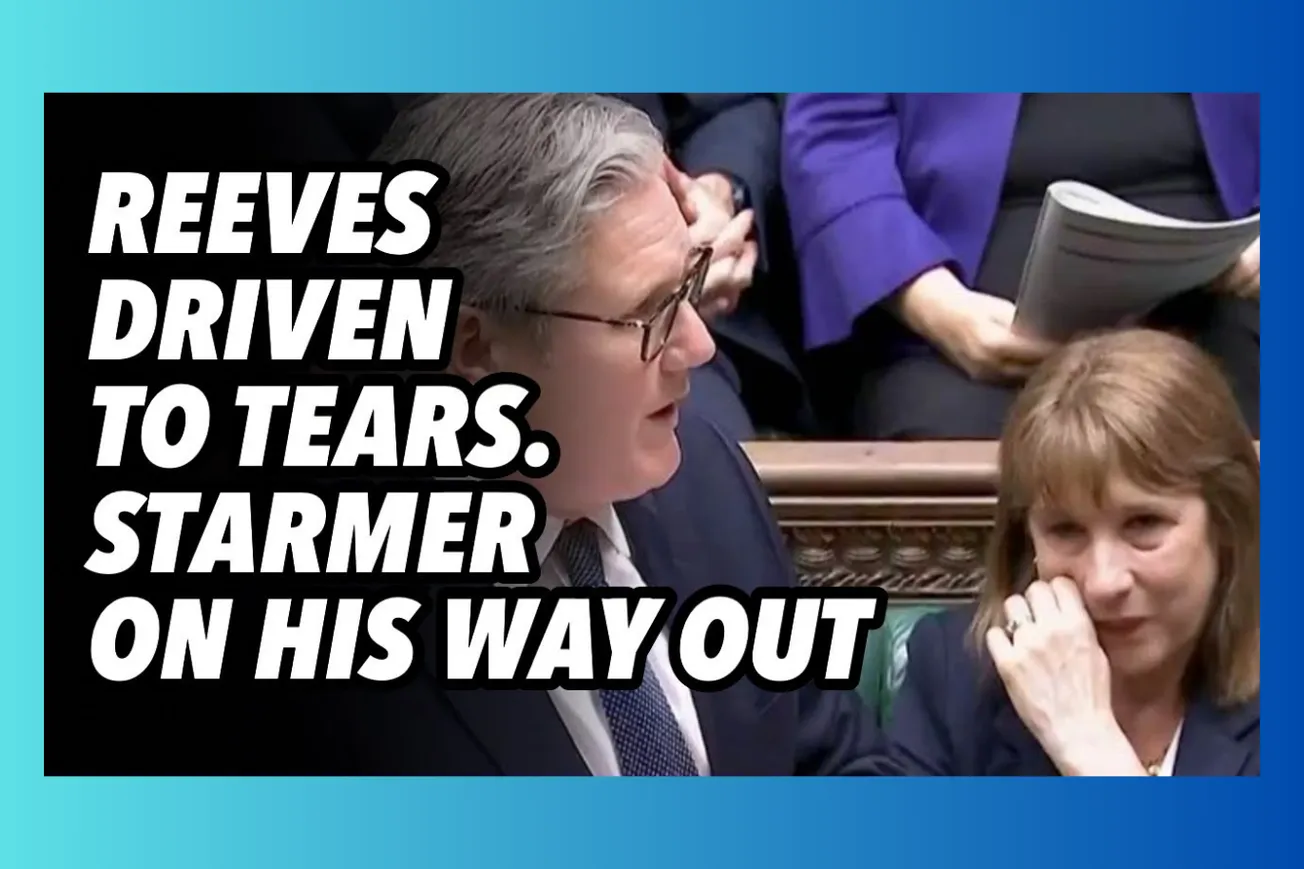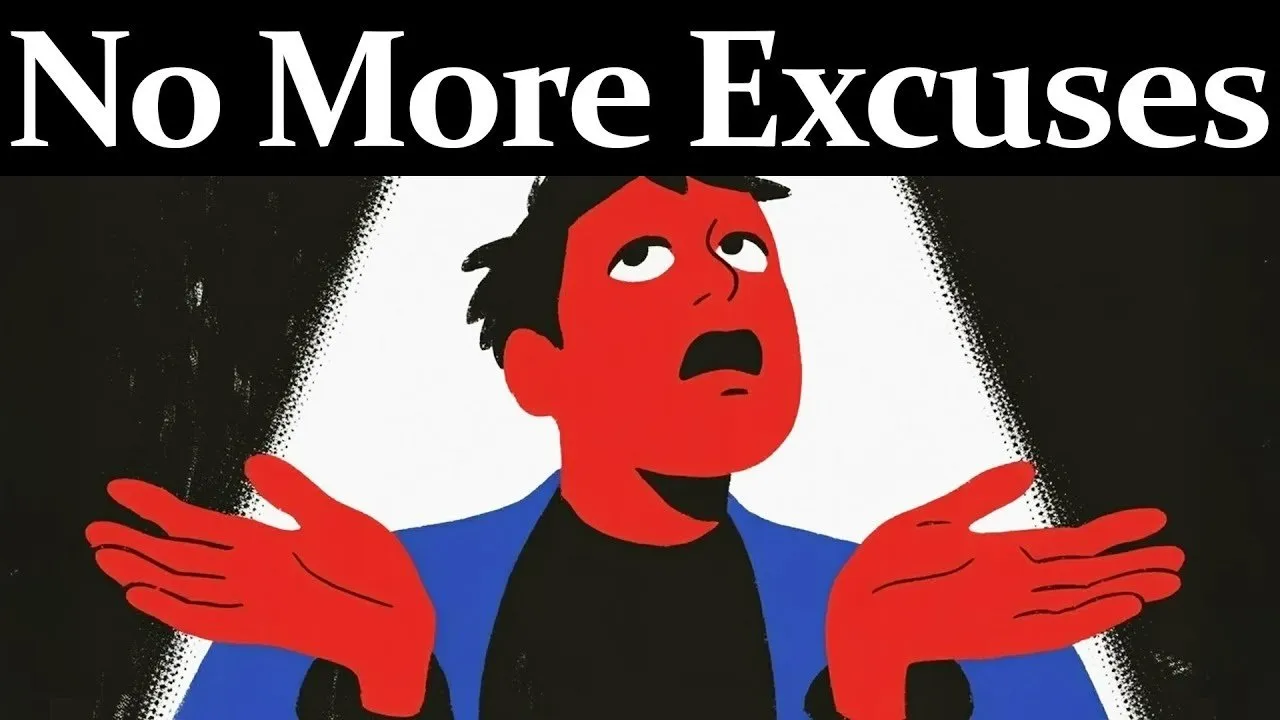Table of Contents
Rachel Reeves broke down crying during Prime Minister's Questions as Starmer threw her under the bus, exposing a government in terminal decline.
Key Takeaways
- Rachel Reeves cried during PMQs after Starmer refused to back her publicly over failed spending cuts
- Labour's £5 billion social security cuts collapsed due to massive parliamentary rebellion against leadership
- UK debt-to-GDP ratio exceeds 100% while government continues £5 billion annual Ukraine funding
- Starmer prioritizes keeping Zelensky happy over addressing Britain's domestic economic crisis
- No politician dares question Ukraine spending despite desperate need for £5 billion in savings
- Nigel Farage has lost his fearless edge since entering Parliament, failing to challenge obvious contradictions
- Starmer's government lacks popular mandate, winning with only 20% of electorate support
- The political class maintains code of silence on Ukraine costs while demanding cuts from British people
The Crying Chancellor Moment
- Rachel Reeves, Britain's Chancellor of the Exchequer (finance minister), burst into tears during Prime Minister's Questions after witnessing Starmer's public betrayal of her leadership. When asked directly whether he still backed his finance minister, Starmer answered evasively rather than offering support, making it obvious to everyone present that she was being set up as the scapegoat for the government's economic failures.
- The emotional breakdown occurred as Reeves sat directly next to Starmer during the parliamentary session, watching in real-time as her political career was sacrificed for his survival. Starmer's callous behavior became even more apparent when he continued answering questions without showing any human sympathy toward his distressed colleague.
- This public humiliation represents the culmination of a disastrous attempt to cut £5 billion from social security spending to reassure bond markets about Britain's fiscal responsibility. The entire Labour parliamentary party rebelled against these cuts, forcing the government to completely rewrite the legislation and delete all proposed savings measures.
- Starmer's treatment of Reeves drew widespread criticism for its dishonor, particularly his willingness to abandon a female colleague publicly while she sat beside him in visible distress. Many observers noted the complete lack of basic human decency displayed by the Prime Minister during this crucial moment.
- The Chancellor's tears symbolize the broader collapse of government authority, with even cabinet ministers recognizing their expendability in Starmer's desperate attempts to maintain power. This incident crystallizes the toxic atmosphere within a government that has lost control of both its parliamentary party and its political narrative.
- Political analysts immediately recognized this moment as comparable to previous chancellor dismissals that precipitated prime ministerial downfalls, drawing parallels to Liz Truss's removal of Kwasi Kwarteng before her own rapid exit from office.
Economic Crisis and Fiscal Constraints
- Britain faces a debt-to-GDP ratio exceeding 100%, placing the country in a precarious fiscal position that demands immediate attention to government spending priorities. The nation runs substantial budget deficits while interest payments on existing debt consume increasing portions of government revenue.
- The government attempted to find £5 billion in social security savings to demonstrate fiscal responsibility to bond markets increasingly skeptical about British creditworthiness. These proposed cuts targeted welfare spending rather than addressing more obvious areas of wasteful government expenditure.
- Labour MPs refused to support the spending cuts because they represent constituencies where voters would be directly harmed by reduced social security benefits. Many of these MPs hold seats with wafer-thin majorities and fear further alienating already skeptical constituents.
- The underlying British economy shows signs of structural decline, with welfare spending increasing as a consequence of broader economic problems rather than being their primary cause. Manufacturing capacity has eroded while service sector productivity stagnates.
- Energy costs remain among the highest in Europe, partly due to sanctions policies and the disruption of Russian energy supplies that previously provided affordable fuel for British consumers and businesses. The government refuses to acknowledge this connection publicly.
- Tax burdens have reached levels that discourage economic growth while failing to generate sufficient revenue to cover government commitments, creating a vicious cycle of declining economic performance and increasing fiscal pressure.
The Ukraine Spending Paradox
- Britain commits £5 billion annually to Ukrainian support while simultaneously searching for exactly £5 billion in domestic spending cuts, creating an obvious contradiction that no politician dares address publicly. This identical sum represents the precise amount needed to resolve the government's immediate fiscal crisis.
- The political class maintains absolute silence about Ukrainian spending costs, treating this subject as untouchable despite its clear relevance to Britain's budget problems. No MP raised this obvious question during Prime Minister's Questions or subsequent parliamentary debates about spending cuts.
- Starmer recently blamed his immigration policy mistakes on being distracted by "really important NATO and other meetings," revealing that foreign policy commitments take priority over domestic British concerns in his thinking. This admission reinforced perceptions that he cares more about international appearances than British voters' needs.
- The code of silence around Ukraine costs extends beyond parliament to mainstream media, which never discusses the true financial burden of supporting Zelensky's government while British citizens face austerity measures. Energy price increases linked to sanctions policies receive similar treatment.
- Supporting Ukraine remains the only issue uniting Britain's fractured political class, providing politicians with a way to brand opponents as "appeasers" or unpatriotic while avoiding difficult conversations about domestic priorities. This consensus prevents rational cost-benefit analysis of foreign policy commitments.
- Britain's commitment to increasing defense spending to 5% of GDP represents another unrealistic financial obligation that politicians discuss without explaining how such increases could be funded given existing fiscal constraints.
Starmer's Political Isolation
- Starmer lacks genuine support within his own party, with MPs viewing him as an electoral liability rather than an asset for their individual political survival. Unlike previous Labour leaders who commanded personal loyalty, Starmer inspires neither affection nor respect among parliamentary colleagues.
- The Prime Minister won office with only 20% of eligible voter support, receiving a large parliamentary majority solely because Conservative Party collapse split opposition votes rather than because of genuine Labour popularity. This weak mandate undermines his authority from the outset.
- Labour MPs sitting on marginal seats recognize that their constituents never liked Starmer or his version of the Labour Party, making them extremely reluctant to support unpopular policies that could cost them their seats at the next election.
- Starmer's handling of immigration demonstrates his political tone-deafness, initially suggesting tougher controls to appeal to voters before walking back these comments to appease left-wing party members, satisfying neither constituency effectively.
- The Prime Minister's evasive response about backing Rachel Reeves reveals his willingness to sacrifice loyal colleagues to preserve his own position, a pattern that destroys trust and cohesion within government ranks.
- Starmer's career appears to be reaching its end much faster than typical for British prime ministers, with even supporters recognizing that his position has become untenable given the combination of economic crisis and political incompetence.
Parliamentary Opposition Failures
- Nigel Farage has lost the fearless edge that made him effective during his European Parliament years, becoming timid and conventional since entering the House of Commons where real power beckons within reach. His transformation from brilliant rebel to cautious politician represents a tragic waste of Britain's most effective populist voice.
- Reform Party leader Farage failed to ask obvious questions about Ukraine spending during Prime Minister's Questions, missing a perfect opportunity to expose government hypocrisy about fiscal priorities. His reluctance to challenge consensus positions undermines his party's outsider credentials.
- Conservative opposition remains equally compromised on Ukraine spending and other key issues, offering no real alternative to Labour policies that are driving Britain toward fiscal crisis. Both major parties share responsibility for the country's economic predicament.
- Farage previously published articles questioning the "unprovoked war" narrative around Ukraine but retreated after facing criticism, demonstrating how proximity to power has weakened his willingness to challenge orthodox positions.
- The House of Commons environment appears to domesticate previously effective critics, with institutional pressures encouraging conformity rather than the bold challenges needed to address Britain's systemic problems.
- George Galloway represented another potential voice for challenging consensus positions but lost his seat in the general election, leaving Parliament without anyone willing to ask fundamental questions about government priorities and spending.
Media Complicity and Public Deception
- British media maintains a complete abdication of responsibility regarding Ukraine costs, refusing to investigate or report on the obvious connection between foreign spending commitments and domestic austerity measures. This represents a betrayal of basic journalistic duty to inform the public about government decisions.
- News outlets mention Britain's high energy costs without explaining their connection to sanctions policies and the disruption of Russian energy supplies, deliberately obscuring cause-and-effect relationships that might question government policies.
- The media narrative around Labour MP rebellions falsely characterizes them as principled socialist opposition rather than acknowledging their fear of electoral consequences from unpopular policies in marginal constituencies.
- Political coverage focuses on personality conflicts and procedural details while avoiding substantive analysis of policy contradictions that expose the government's fundamental incoherence on fiscal matters.
- Television and newspaper reporting treats Ukraine support as beyond legitimate debate, effectively functioning as government propaganda rather than independent journalism that might challenge official positions.
- Public discourse remains constrained by artificial boundaries that prevent rational discussion of trade-offs between foreign commitments and domestic needs, leaving British voters uninformed about crucial budgetary decisions affecting their lives.
Systemic Political Breakdown
- Britain faces an unprecedented political crisis where no major party offers competent leadership or realistic solutions to the country's mounting problems, creating a dangerous vacuum in democratic representation. The ship drifts toward the rocks with no capable captain available to take control.
- The electoral system produces governments with large parliamentary majorities despite minimal popular support, creating an illusion of democratic legitimacy while actual voter preferences remain unrepresented in policy-making.
- Traditional mechanisms for political accountability have broken down as both government and opposition share responsibility for failed policies, eliminating meaningful choice for voters seeking different approaches to national challenges.
- The political class prioritizes international commitments and ideological positions over practical governance, treating domestic British interests as secondary to maintaining credibility with foreign allies and institutions.
- Constitutional arrangements provide no effective means for removing incompetent governments between elections, forcing the country to endure years of damaging policies despite clear evidence of their failure.
- The collapse of Conservative Party credibility has not produced a corresponding rise in Labour competence, leaving Britain effectively ungovernable by either traditional party while newer alternatives lack sufficient strength to provide stability.
Starmer's government represents the most spectacular Zelensky curse yet witnessed, with Ukraine support priorities directly contributing to domestic political collapse. Rachel Reeves's tears symbolize not just personal betrayal but the broader breakdown of British governance under the weight of unsustainable foreign commitments and economic mismanagement.





